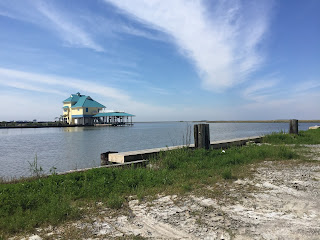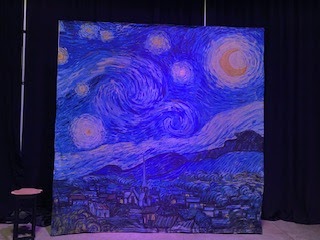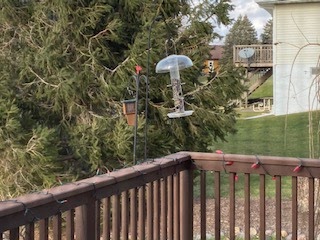Exploring Cocodrie, holy shrimp and more ...
The hotel clerk in Texarkana, Arkansas, had some information to share: "I used to work construction in Houma, Louisiana," he said after learning of our ultimate destination. "There's a lot of alligators down there, and the bayous are on both sides of the street. Sometimes we'd see alligators along the roadway."
Houma was our destination for about a week; the first thing we learned was how to pronounce this town, "HOME-ah," not "Hoo-mah," as my Yankee head thought. HOME-ah. HOME-ah. The correct pronunciation was repeated all the way through central Louisiana to this southern town, which stretched over several square miles.
Houma is the jumping-off point to areas south, which include Cocodrie, or Grand Isle, Louisiana. It has a vast commercial district, much like 53rd Street in Daveport.
Grand Isle includes a state park and apparently the only public sand beach on the Gulf of Mexico in Louisiana; more on that trip in the next blog. This one will focus on Cocodrie.
It was a beautiful, sunny Saturday to drive south to Cocodrie. It would be a trip along a loop of Highways 56 and 57. The suggestion for this side trip came from a helpful employee at the brand new Houma Area Convention and Visitors Bureau.
Houma stretches for miles, but south of the city are houses and business along the bayous on either side of Highway 56. Almost everyone owns a boat of some sort. The road is set up from the water, and most properties are on stilts. We drove first to Chauvin, site of bricklayer Kenny Hill's sculpture garden (the topic of a previous blog), and stopped to eat lunch at Sportsman's Paradise Restaurant and Motel, also in Chauvin.
While at Sportsman's we ordered fresh fish, featured on the menu, and it was delicious. The motel was the old-fashioned type, with rooms and doors that were on one level, mainly. It was a pleasant bit of time travel.
Fishing is a big-time activity in this part of Louisiana. Beyond the retail trade for fresh fish, there are dozens of charter fishing firms at work, and many businesses, like the Sportsman's Paradise, devoted to the fisherman/visitor.
Driving south and the west side of the road ultimately gave way to the Gulf of Mexico. Homes stood on little bits of land, and it was hard to tell how residents could get to a house without a boat. The town of Cocodrie was long and narrow, centered on the highest land in the area. Erosion of land into the water is a big deal in Louisiana; it is a main theme of Houma's Water Musuem, and it comes up in conversations with local folks.
We'd hope to find a place to perch in Cocodrie, but the only public site to be found was the Louisiana Universities Marine Consortium, or LUMCON. LUMCON (LUMCON.edu) is a place of study for the fishing industry of Louisiana, and for water quality and the like. It was pretty well closed on this Saturday.
We did locate a restaurant and bar on the return trip north along Highway 57, this area was just west of Chauvin. A husband-and-wife duo welcomed us into their establishmen. As soon as they learned we like to look at the bayou, they opened up the rear of the business and we stepped outside.
"Look," said the wife. "See the shrimp boat right there? He's fixing up the cabin for shrimp fishing in a few weeks." A low-heeled boat included a box-shaped apartment under construction on the top; the owner would sleep onboard at night during the season.
She explained the town would be the site of a Blessing of the Boats ceremony, two weeks hence. All shrimp boats would be decked out in lights and decorations, and the local priest at the Catholic Church would bless the boats, hoping for a good harvest.
The couple said they'd grown up in town, and never travelled much because of the business. The husband said he'd like to see more of the country, sometime, but the place they have in southern Louisiana is pretty special.
Sportsman's Paradise in Chauvin, La. A center for charter fishing, and good food too!
This bridge crosses a bayou and comes off the highway; there are many bridges in southern Louisiana and they are essential for local residents and commerce.






Comments
Post a Comment